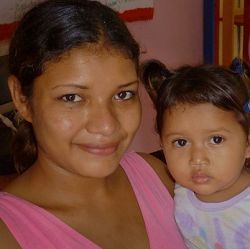


What do Directors Get out of Festivals?

… a good question, put by Koen Suidgeest, who has been extremely busy in the promotion of his important humanistic documentary, “Karla’s Arrival”, that right now also is launched through a kickstarter campaign to collect money to get the film to classrooms. Suidgeest sent us this text, he and and filmkommentaren invite others to join a discussion on the question put above. Here is his text
Karla’s Arrival is a documentary which, for the first time in my career, has allowed me to really experience the international festival circuit first hand. Since its world premiere in March of this year at OneWorld (Prague), the film has been selected in some 30 international fests, big and small. It has been a humbling experience which has involved a huge learning curve and many airmiles. At the same time, it has also made me think of why I am so eager to attend some of these festivals in the first place. What do directors get out of festivals? In light of my already very busy schedule, including two new projects, should I really be going?
Wanting to attend the fests upon finishing the film has been an automatism. Given the opportunity, I was certain I’d try to go to as many as possible. I very much looked at it as a trophy for years of hard work. But this view has now changed and more and more, I am starting to question the invested time, money, loss of productivity and endless days away from my children. What added value is there really? Let’s run through a few possibilities.
One benefit of the festivals is being in direct contact with your audience. I always say: if you want to make money, you have to sell to broadcasters. But if you want personal satisfaction, you should go to festivals. Downside is that Q&A’s rarely last longer than 15-20 minutes and audiences are often small. For two or three screenings, we travel long hours, stick around for 3-4 days and, whether the fest pays all or part of it, there are always additional expenses. Can I live without this ego-boost? And is the viewing experience of the audience less valuable without the director being present?
Another benefit of going is making new contacts in the industry. Yet at many fests there is very little industry. Docudays in Kiev for instance is a wonderful festival, but in terms of meeting people who could mean something for your career, it’s very meager. Of course there are the occasional surprises, when you are in the right place at the right time to meet that one person you’ve always wanted to have a beer and relaxing chat with. But the price of these types of coincidences is high. You can’t count on them.
A third benefit of visiting festivals is being able to do press. Yet in reality, I haven’t had that much. Often there are so many films programmed that only a handful receive media attention and we’re not always part of that selection.
And fourth, on a personal level, I sometimes take an invitation to a festival when it’s in a place I have good friends I haven’t seen for a while. The Montreal World Film Festival was like that for me, this past August. But it does feel like cheating.
In reality, since the festival arena is quite anarchistic, it’s sometimes hard to gauge what one will be like. Of course we all know what professional opportunities IDFA holds within its complex and unabridged dynamic. But for example, what about the AFI Latin American Film Festival in Silver Spring (yep, very same location as Silverdocs)? I went and it didn’t turn out to be a traditional festival but rather a film series which only runs in evenings. Surprise.
So I sometimes sit at festivals and wonder why I am there. And then I think of the underlying core question: can our films, like grown children, vouch for themselves in this world? Or do we need to take them by the hand?
Koen Suidgeest is a Dutch filmmaker based in Madrid. Karla’s Arrival (www.karlasarrival.com) is his first feature-length documentary.